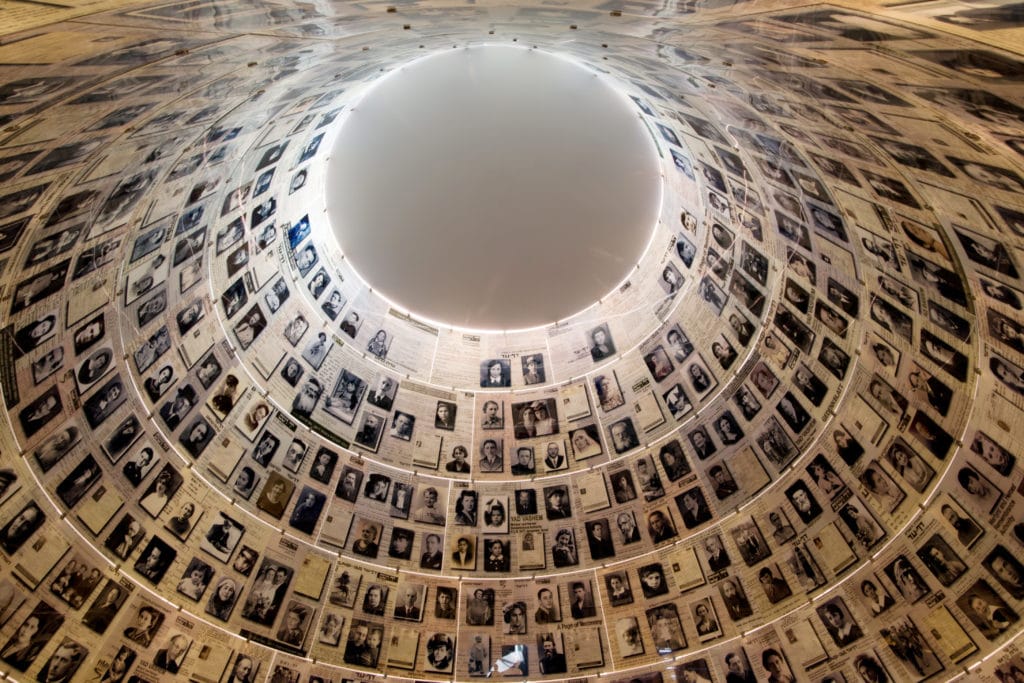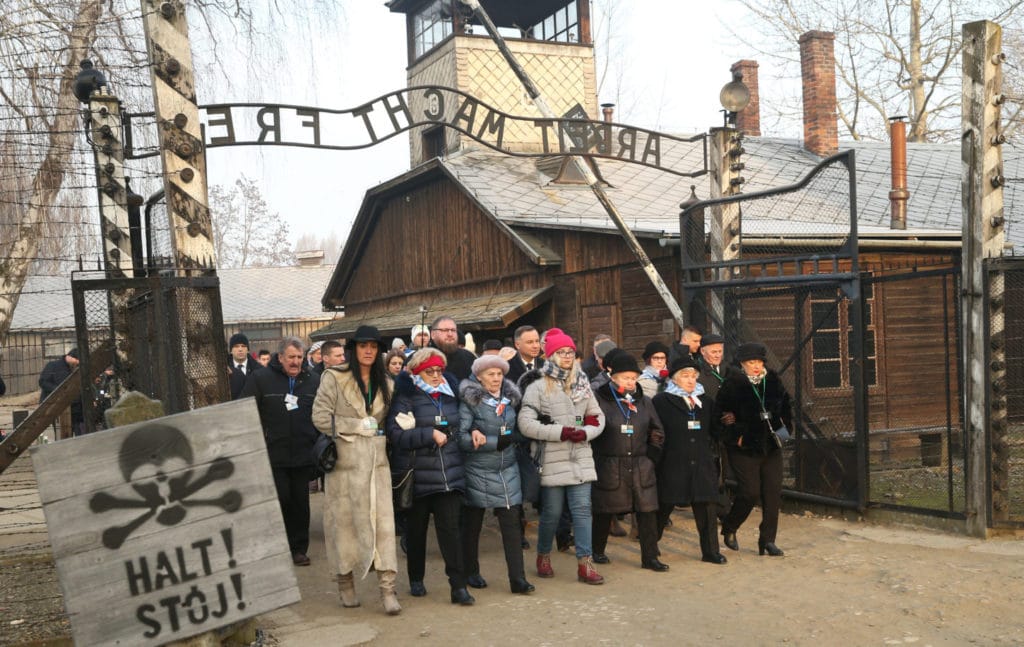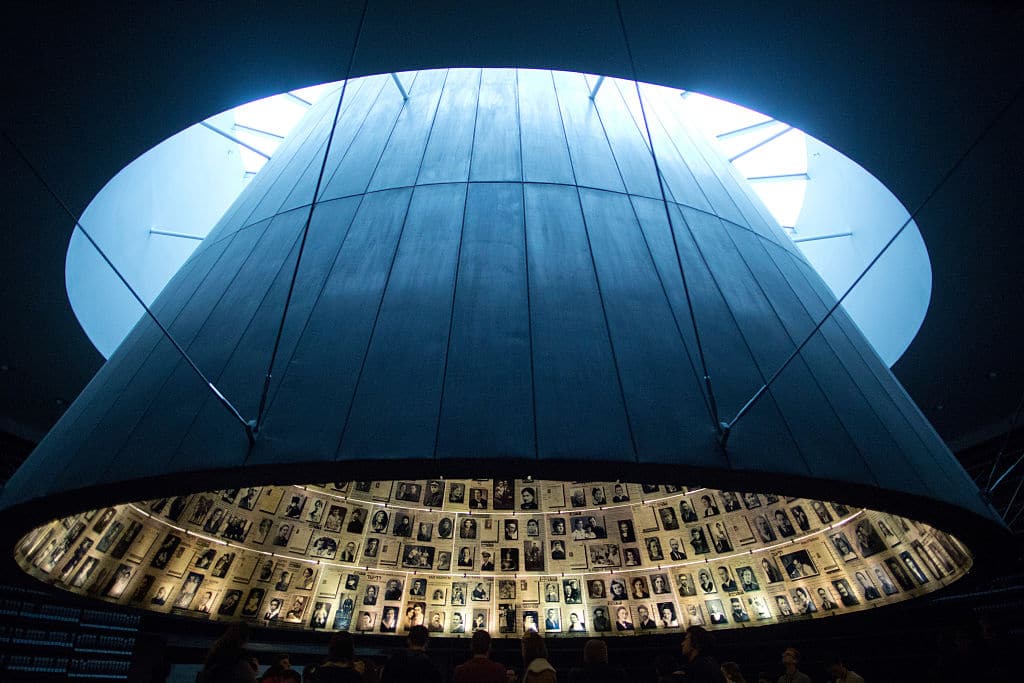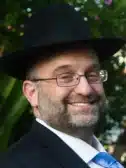The smoke rising from Auschwitz asks a question we still struggle to answer.
When we confront the Holocaust — perhaps the single most devastating tragedy in modern history, the unfathomable abyss etched into our collective memory — we also face one of the most profound theological dilemmas imaginable: Where was God?
This is not merely an academic query. It reverberates in the whispered stories of our grandparents and great-grandparents. It shadows community gatherings, surfacing unexpectedly in the quiet moments of late-night conversations. Like gravity, it draws us toward depths we might prefer to avoid yet cannot escape.
Voices from the darkness
Before we navigate theological responses, we must first listen deeply to those who endured the unimaginable.
Documentary filmmaker Menachem Daum, the son of Holocaust survivors, recalls his father’s unwavering faith despite witnessing unspeakable horrors. When asked how he could still believe, his father replied, “A God limited to actions comprehensible to human minds couldn’t possibly be God.” Daum’s mother, meanwhile, observed religious rituals faithfully but harbored questions of faith. During Passover seders, she would challenge her husband: If God performed miracles in ancient times, where were His miracles during the Holocaust?

Daum described this tension poignantly as his mother’s “strange combination of faith and doubt — observing commandments from a God she couldn’t forgive.”
This profound tension between devotion and disillusionment, tradition and trauma, permeates countless survivor testimonies. Elie Wiesel, the eminent chronicler of Holocaust memory, vividly recounted a mock trial held in a concentration camp, where God was placed on trial — and found guilty. Yet immediately after the verdict, the prisoners strikingly gathered for evening prayers.
Navigating the forest of theological responses
Jewish reflections on God after the Holocaust offer no single path; they resemble a dense forest, each trail diverging toward distinct, compelling interpretations.
The concealed face: Hester Panim
The Torah’s concept of hester panim — the concealment of God’s face — suggests moments when God deliberately withdraws His manifest presence, allowing human freedom to run its course, for better or worse.
Consider a parent who must step back, painfully, to allow their child to grow through hardship. While the metaphor can never fully account for the atrocities of the Holocaust, it provides a tentative means of conceptualizing an otherwise unbearable divine silence.
The freedom framework
Rabbi Eliezer Berkovits, who narrowly escaped Nazi persecution in 1939, proposed that true human freedom inherently includes the possibility of evil. Without genuine consequences to our choices, there would be no dignity in human choice.
Imagine a world where human actions never truly mattered — where acts of violence miraculously dissolved into harmlessness. Would we retain true humanity, moral agency, or the capacity for ethical growth in such a world? Berkovits contends that genuine freedom comes with a steep price: the very real possibility of catastrophic evil.

One profound implication of this freedom framework is its emphasis on modern empowerment through human free will. If human choices cause evil, human choices can also prevent it.
One perspective places responsibility squarely on humans rather than God. In this view, God gave us free will, and tragically, Hitler and his followers chose evil. Just as we can choose kindness or cruelty on a daily scale, the Nazis chose destruction on a horrific scale. This shifts the question from “Why didn’t God stop it?” to “Why didn’t we?” And more importantly: “How can we ensure we do next time?” This framing directly connects theological reflection with contemporary moral agency, resonating with young professionals committed to justice, equality, and ethical responsibility.
Mystical interpretations
Mystical ideas can be challenging to grasp, as they attempt to make sense of profound tragedy through concepts that extend beyond everyday experience. Some rabbis and mystics interpreted the Holocaust through frameworks rooted in Kabbalistic thought, suggesting spiritual processes like gilgul neshamot (reincarnation of souls) or cosmic tikkun (repair) unfolding on planes beyond human perception. According to these interpretations, the immense suffering and loss carried hidden metaphysical purposes meant to correct spiritual imbalances or complete cosmic cycles.
To better understand these complex mystical concepts, perhaps we can draw analogies from contemporary science fiction or Marvel films. These stories are familiar to us with narratives involving parallel dimensions and invisible forces shaping reality in hidden ways. Similarly, mystical interpretations of the Holocaust suggest that our visible world is interconnected with unseen realms where profound spiritual transformations might occur. While these ideas may initially seem abstract or even fantastical, they reflect an earnest attempt to find meaning amid inconceivable tragedy, offering yet another avenue to confront and cope with the unimaginable.
The 614th commandment
Emil Fackenheim, a prominent German-born Jewish philosopher who fled Nazi Germany and later became a leading post-Holocaust theologian, proposed what became known as the “614th commandment”: Do not grant Hitler posthumous victories. In Fackenheim’s view, Jewish survival itself becomes a sacred obligation — precisely because the Nazis sought not only to murder individual Jews but to annihilate Jewish existence and erase Jewish meaning from history.

Thus, survival becomes a form of spiritual resistance. Each act of continuing Jewish life: practicing traditions, educating the next generation, and engaging with Jewish creativity defies the ultimate Nazi objective — the erasure of Jewish meaning and memory.
The limits of theology
Each of these theological approaches, while powerful, inevitably encounters the same limitation: the attempt to explain the inexplicable. Rabbi Joseph Soloveitchik, a towering figure in 20th-century Jewish thought and a leader of Modern Orthodox Judaism in the United States, acknowledged this explicitly. Known for his profound intellectual depth and deep engagement with existential questions, Soloveitchik advocated for theological humility. Some questions, he suggested, may simply lie beyond the reach of human understanding.
For him, the most authentic response might be a reverent silence — not a silence of despair, but one deeply imbued with protest, humility, and persistent faith amid uncertainty.
From theory to practice: Ethics after Auschwitz
What happens when we shift from abstract theology to lived ethics? How might different understandings of God’s role during the Holocaust shape how we live now?
The Piaseczna Rebbe, Rabbi Kalonymus Kalman Shapira, wrote Torah commentaries while imprisoned in the Warsaw Ghetto, continuing to teach until his murder by the Nazis. His writings suggest that suffering calls us toward tikkun — the repair of a broken world. Rather than focusing solely on explaining suffering, he urged a response grounded in ethical action.

In the aftermath of the Holocaust, many Jewish thinkers emphasized developing philosophies centered on the creation of just societies, grounded in compassion and collective responsibility. This approach suggests that while we may never fully understand where God was during the Holocaust, we can be certain where we should be when confronting suffering today: Standing with the vulnerable and opposing dehumanization in all its forms.
The question lives on
For young Jews today, the question “Where was God during the Holocaust?” connects to broader questions about meaning, identity, and moral responsibility in a complex world. How can we honor our traditions without simplifying their complexities? What does it mean to carry forward Jewish identity in a way that responds authentically to both historical trauma and contemporary challenges?
The question of God’s presence — or absence — during humanity’s darkest hour may never find a fully satisfactory answer. But in wrestling with this question, like Jacob wrestling with the angel through the night, we may find ourselves transformed, carrying both wounds and blessings forward into the dawn.
Yet, this does not imply we abandon the search for meaning. Instead, meaning may emerge from the ethical choices we make in response to questions that remain open. Darkness exists, and maybe, as it has been suggested, the Hebrew word lamah (“why”) should be read as l’mah — “for what purpose?” In that reframing, we ask not only why the tragedy occurred, but what we can do, here and now, to repair the world in its aftermath.
